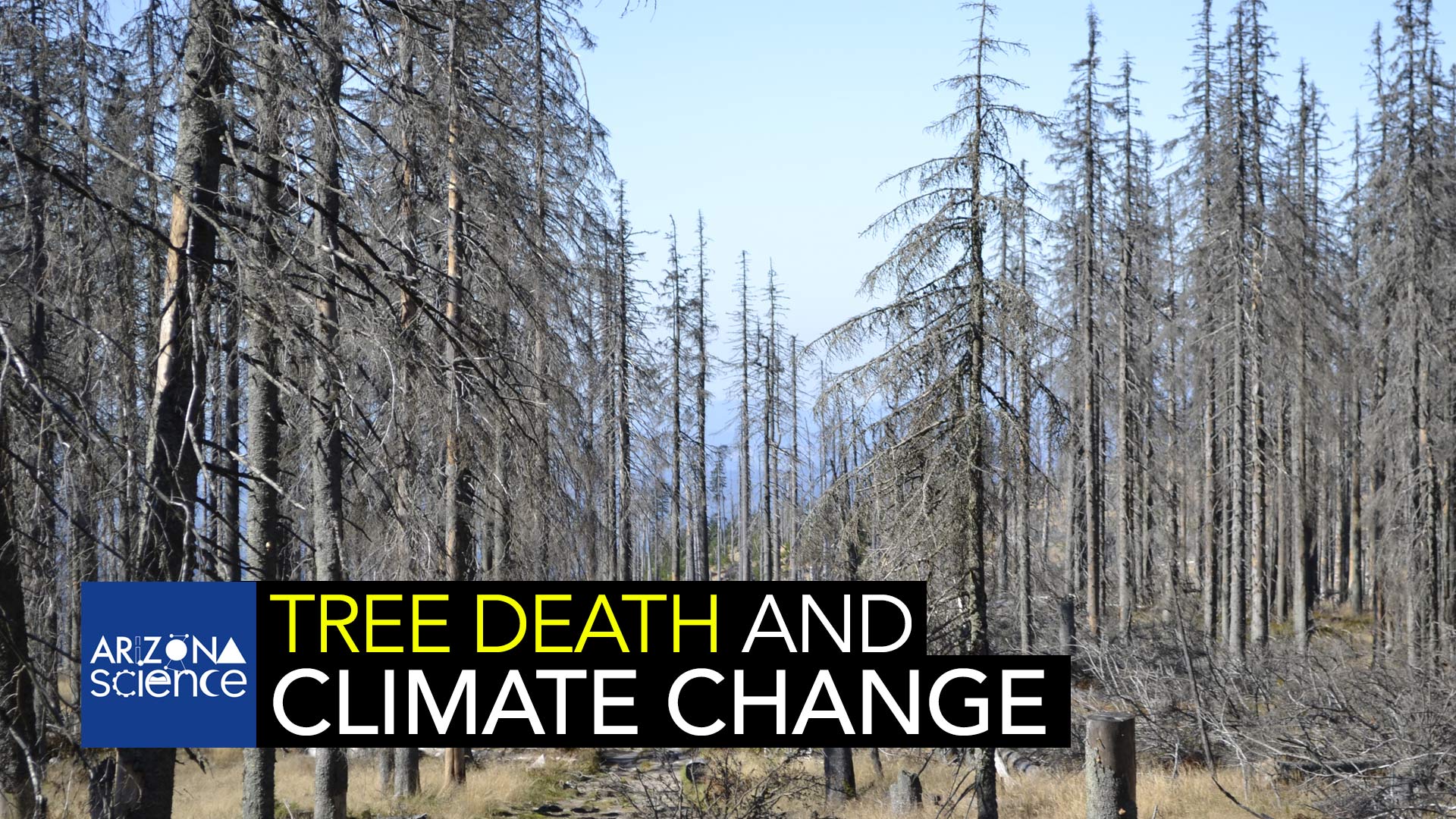 The frequency of large-scale tree die-offs inhibits their fight against climate change.
The frequency of large-scale tree die-offs inhibits their fight against climate change.
High Contrast, CC 3.0
University of Arizona researcher David Breshears has been investigating the frequency of large-scale tree die-offs. He says when forests fall victim to drought, they take longer to recover. When trees take longer to recover, they are slower to perform their function of storing carbon, inhibiting the fight against climate change. Hotter conditions induce more drought, causing new tree die-offs and the cycle begins again.
Prof. Breshears teaches in the School of Natural Resources and the Environment. He was interviewed for Arizona Science by Leslie Tolbert, Ph.D, Regents' Professor Emerita in Neuroscience at the University of Arizona.
Catch Arizona Science each Friday during Science Friday on NPR 89.1. You can subscribe to our podcast on Apple Music, Spotify, Amazon Music, or the NPR App. See more from Arizona Science.
MORE:


By submitting your comments, you hereby give AZPM the right to post your comments and potentially use them in any other form of media operated by this institution.